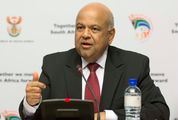THE financing requirements for National Health Insurance (NHI) could potentially require additional tax revenue of R71.9bn in 2010 prices by the financial year 2025-26, according to the NHI White Paper.
Three potential sources of tax revenue are identified for funding the shortfall: increasing VAT, a payroll tax, and a surcharge on personal income tax. Five alternative scenarios using various combinations of these tax bases are identified as possibilities.
The white paper, released on Friday following Cabinet approval on Wednesday, is the next step in policy development after the release in August 2011 of the green paper on NHI, which proposed implementing universal health coverage that is free at the point of delivery over the next 14 years. A central NHI fund is to be established, to pay accredited public and private sector providers.
The paper says there is uncertainty about the funding requirements for NHI because they depend on public sector improvements and medical scheme regulatory reforms "that have not yet been fully articulated". The basket of services that is to be provided to patients under NHI is not defined.
"We will design it in such a way that it is affordable for the people of SA", Health Minister Aaron Motsoaledi said at a media briefing earlier on Friday.
"We believe there is a lot of money for health in the system," he said, citing as examples provincial health departments, and the various government funds for compensating people injured at work, on the mines, or in traffic accidents.
More funds were available in the private health sector too, he said. For example the state provided tax credits of R16bn to medical scheme members.
The paper outlines sweeping reforms to the healthcare sector, one of the biggest of which is a proposal to limit medical scheme cover, by prohibiting medical schemes from duplicating cover provided by NHI.
Central hospitals such as Charlotte Maxeke and Groote Schuur are to become centralised assets, rather than being under the control of provincial health departments. This idea was flighted several years ago and met strong opposition, particularly from the Western Cape.
"NHI is a policy shift that will contribute to eradicating poverty," the minister said.
Health, he said, should not be treated as a commodity subject to the vagaries of market forces. He cited a host of examples of staggeringly high bills for medical procedures conducted in private hospitals, emphasising that even better off citizens with medical scheme cover could face catastrophic health expenditure.
Health Minister Aaron Motsoaledi briefs the media media after meeting with the health cluster at a State of the Nation Address debate on Tuesday. Picture: TREVOR SAMSON
THE financing requirements for National Health Insurance (NHI) could potentially require additional tax revenue of R71.9bn in 2010 prices by the financial year 2025-26, according to the NHI White Paper.
Three potential sources of tax revenue are identified for funding the shortfall: increasing VAT, a payroll tax, and a surcharge on personal income tax. Five alternative scenarios using various combinations of these tax bases are identified as possibilities.
The white paper, released on Friday following Cabinet approval on Wednesday, is the next step in policy development after the release in August 2011 of the green paper on NHI, which proposed implementing universal health coverage that is free at the point of delivery over the next 14 years. A central NHI fund is to be established, to pay accredited public and private sector providers.
The paper says there is uncertainty about the funding requirements for NHI because they depend on public sector improvements and medical scheme regulatory reforms "that have not yet been fully articulated". The basket of services that is to be provided to patients under NHI is not defined.
"We will design it in such a way that it is affordable for the people of SA", Health Minister Aaron Motsoaledi said at a media briefing earlier on Friday.
"We believe there is a lot of money for health in the system," he said, citing as examples provincial health departments, and the various government funds for compensating people injured at work, on the mines, or in traffic accidents.
More funds were available in the private health sector too, he said. For example the state provided tax credits of R16bn to medical scheme members.
The paper outlines sweeping reforms to the healthcare sector, one of the biggest of which is a proposal to limit medical scheme cover, by prohibiting medical schemes from duplicating cover provided by NHI.
Central hospitals such as Charlotte Maxeke and Groote Schuur are to become centralised assets, rather than being under the control of provincial health departments. This idea was flighted several years ago and met strong opposition, particularly from the Western Cape.
"NHI is a policy shift that will contribute to eradicating poverty," the minister said.
Health, he said, should not be treated as a commodity subject to the vagaries of market forces. He cited a host of examples of staggeringly high bills for medical procedures conducted in private hospitals, emphasising that even better off citizens with medical scheme cover could face catastrophic health expenditure.






















Change: 0.03%
Change: -0.33%
Change: 5.35%
Change: -1.07%
Change: -6.24%
Data supplied by Profile Data
Change: -1.32%
Change: 0.20%
Change: 0.03%
Change: 0.00%
Change: -0.20%
Data supplied by Profile Data
Change: -5.03%
Change: -5.38%
Change: -4.53%
Change: -4.58%
Change: -4.06%
Data supplied by Profile Data
Change: -0.79%
Change: 1.29%
Change: -1.22%
Change: 0.91%
Change: 0.13%
Data supplied by Profile Data